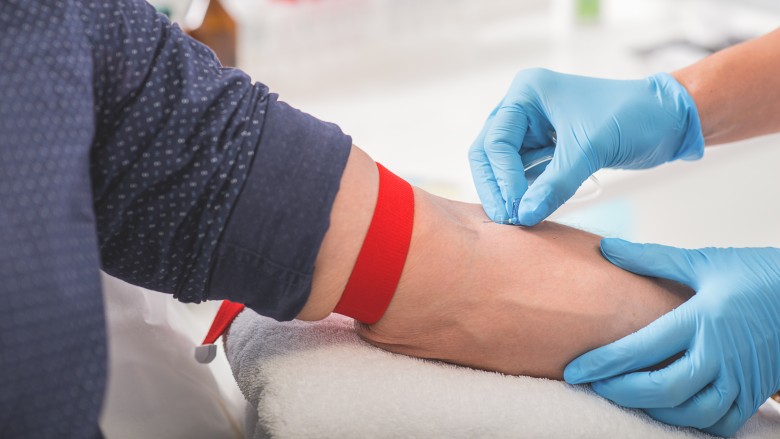What To Do When You Catch Your Partner Cheating
People often say that nothing quite matches the betrayal felt after learning that a partner is cheating. It has to be one of the hardest things a person can experience. When working in crisis intervention, many of my counseling clients described feeling shocked and shaken on a fundamental level. Surprisingly, even those who had cheated often said similar things.
It's a complex and painful situation because no two stories are alike. How one couple gets through the heartache may not work for another. While it's easy to claim that people cheat for sexual gratification, the truth is that many are actually seeking an emotional connection. This can make it even harder for the betrayed partner to hear the truth.
There are so many variables to consider, which is why it can be bewildering to navigate these hurtful waters. Here are some suggestions for what you can do if you catch your partner cheating.
Take a deep breath
If you've just learned about the infidelity, you more than likely are feeling overwhelmed by emotion. You might want to scream, break things, be confrontational, or otherwise destructive. After all, it feels good to blow off some steam when we are hurting, right?
For your safety and the safety of others, it's probably best if you take some time alone and just breathe through what you are feeling. It's definitely easier said than done but once you give into anger, you could end up doing or saying some things that you will regret.
Pro tip: Water can feel really cleansing in a moment like this. Take a hot shower, cry as needed, and allow yourself a few moments to digest everything you have learned.
Make sure your partner actually cheated
This might sound silly but you will want to make sure that your partner actually cheated, unless, of course you saw something absolutely indisputable (which, sadly, happens). Is the evidence reliable and fully vetted? Could there be any other explanations for your partner's actions? This is the time to find out.
Along the same lines, not every instance of cheating is going to involve sexual intercourse. You may have to figure out what infidelity means to you. Is it flirting? Sexting? Sharing personal details with a close friend? Kissing? Snuggling? Really, it all depends on your comfort level and the boundaries you have set in your relationship.
Pro tip: Gather everything you know and CALMLY ask your partner for an explanation. Also, some people consider anything cheating that they wouldn't do in front of their significant other.
Ask for answers (if you want them)
You may not want to know anything but, if you do, this is the time to ask. As your partner shares information, try to actually listen with an open mind instead of having knee-jerk reactions. This will be important as you make decisions about the status of your relationship down the road.
Before having this conversation, sit down and think about what you want to know and make a list of questions. Take breaks from time-to-time so that you both don't become overwhelmed by the heaviness of this discussion.
Pro tip: It might not be easy to hear anything your partner is going to tell you, so only initiate this conversation when you feel ready.
Get tested for sexually transmitted infections
It's a sobering reality for anyone who has dealt with infidelity but one of the first things I advised my counseling clients to do is get tested for sexually transmitted infections. It's really devastating to imagine that your partner could expose you to potentially life-threatening viruses, which will be something you will have to work through in your own time.
Pro tip: Don't postpone this step. Many infections, even serious ones such as HIV, respond well to early intervention and treatment. Take someone with you for moral support.
Do not sit and obsess over details
At first, you will probably struggle to accept what is happening and your brain will pore over the details looking for answers. That's a fairly common occurrence. At some point, though, you will have to make a conscious effort to try to move past what you have learned so that you can move toward healing.
If, during this process, you get stuck on certain aspects of the situation, it might help to ask your partner for clarification. Once you have that, process the new information and continue working through this. It's not healthy to sit and obsess over the details.
Pro tip: Deep down, you will know when you've started crossing the line into obsession. Stop looking at social media pictures and anything else that adds fuel to the fire.
Resist temptation
You might find that you are tempted to act out in ways that are less than helpful as you navigate your way through this difficult time. There are a few things that seem to be pretty common during this time period.
For example, some people consider cheating on their partner in retaliation. Some track down the "other person" to demand answers and engage in confrontation. Don't give in to these temptations. Outbursts and more infidelity is not going to help you feel better. If anything, it will only make things worse.
Pro tip: Find some sort of activity to occupy your mind when you feel tempted to engage in unhealthy coping mechanisms. Write in a journal, go for a walk, or call a friend. Create a strategy ahead of time so that you will know what to do when the urge strikes you.
Give yourself some time
Everyone will grieve and heal from infidelity at their own pace. Some will be able to move past this relatively quickly while it might be more difficult for others. It will also depend on the severity of the situation.
If, for example, a pregnancy has resulted from your partner's cheating, that adds another layer of trauma for everyone involved. Therefore, it might take more time to recover from this type of situation than if you found out your partner was flirting with a coworker.
Pro tip: Be patient with yourself during this healing process and do not allow your partner (or anyone else) to pressure you to "get over it."
Seek professional counseling, if needed
After some time has passed, if you discover that you are struggling to cope with your partner's cheating, you may want to consider professional counseling. Sometimes, it just helps to talk to someone who is removed from the situation and can be unbiased and objective. You can also choose to bring your partner to your sessions, if you think it will help.
This is especially important if you are feeling depressed and having suicidal thoughts. There's no shame in admitting to feeling this way and reaching out for help. Most people will experience dark times at some point in their life.
Pro tip: Do not ignore lingering feelings of anger, anxiety, or sadness. If you don't want or can't afford counseling, consider a self-help support group offered locally or online.
Consider forgiveness
It might be hard to imagine forgiving your partner, especially in those early days, but you may want to consider it eventually – even if you do not plan to stay together. It might really help you let go of the pain of this situation so that you can fully move on.
So often, people assume that forgiving someone is the same as condoning bad behavior. That is simply not true. Forgiving someone is about releasing the negative feelings you hold about the ways they have hurt you so that you can set yourself free. You don't even have to talk to them to forgive them!
Pro tip: Write down all of the ways that you feel wronged by your partner's infidelity. Add to it as needed. Then, when you are ready, take a few moments to honor your journey and then burn the paper. Many people feel so good when they see the words describing their pain go up in flames.
Make a decision
When you are ready, you will need to make a decision about the future of your relationship with your partner. Many couples try to work it out after cheating has occurred and some will be successful. Some might try and fail at reconciliation. Others will choose to walk away from the relationship.
You will discover that, no matter what path you choose, the people around you who know about the situation will have an opinion. You can hear what they have to say (if you choose to) but, ultimately, only you can decide what is right for you.
Pro tip: If you are feeling conflicted, come up with a pros and cons list for the different scenarios you are considering. Having everything written down can bring clarity since your feelings may feel all jumbled up inside.
Work on yourself
No matter what, surviving infidelity will change you as a person. You will want to take some time to see how you have been affected so that you can emerge strong and healthy. Incredibly, there are people who gain valuable insight from a cheating partner and a broken relationship.
Challenge yourself to honestly and critically evaluate what happened and then work on yourself. So many people blame themselves for their partner's actions and discover that they have insecurities that they never realized. This is an opportunity to give yourself the attention you deserve.
Pro tip: What have you wanted to do for yourself but keep putting off? Do you want to go back to school? Run a marathon? Start a business? Make yourself the priority now!
Focus on the future
While it would be easy to get caught up in all of the negativity, your energy is best saved for focusing on the future. Instead of trying to understand how things ended up the way they are, think of all the ways in which your life can be better moving forward.
Allow yourself time to grieve and then channel your anger, frustration, and pain into something positive. Use those powerful emotions as fuel and set clear boundaries and expectations in your relationships.
Above all, never settle for less than you deserve. Have the courage to move on when someone takes you for granted. Remember that you are beautiful, strong, and worthy of love, honesty and respect!












